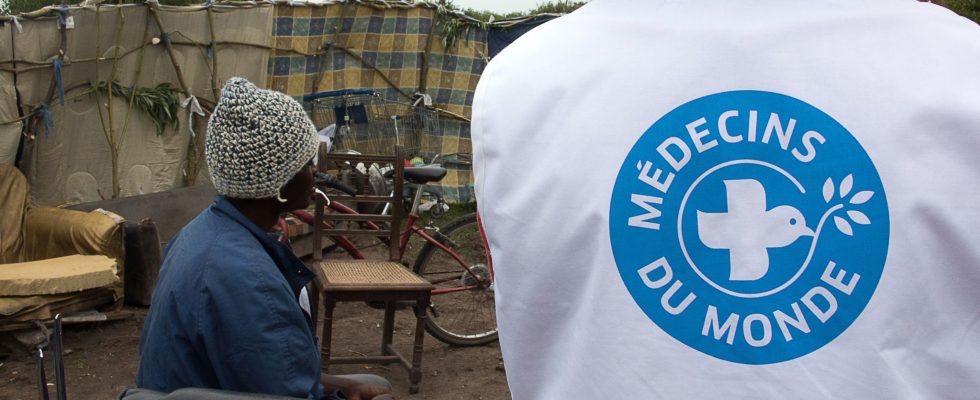Once again, politicians are attacking state medical aid (AME). The Minister of the Interior Gérald Darmanin said he was in favor of its removal in favor of a degraded process dependent on his ministry and reduced to the framework of “medical emergency”. To do this, he would benefit from the upcoming immigration bill. Politically, this announcement is questionable and discussed, including within the government itself. “My position has not changed in ten years: I support the AME because it is not involved in illegal immigration,” Olivier Véran, former Minister of Health and spokesperson, told France Info. word of the government. However, the political will to abolish the AME remains strong.
Remember that the AME comes from the Law of July 27, 1999 creating the CMU (today replaced by complementary solidarity health insurance). It provides medical protection to foreigners with a stable residence in France but who cannot be affiliated to a social security system or apply for the right to asylum, who have been in an irregular situation on the national territory for more than three months and who have resources below a certain threshold (810 euros/month). Proof that the debate is above all political, the cost of care covered by the AME represents only 0.25% of Health Insurance expenditure in France (1.2 billion euros). And migration for health reasons – the great fantasy of health tourism often invoked to attack the AME – is a minority among the reasons for leaving countries of origin.
Destroying the AME, from a strict public health point of view, represents taking a risk which will not solve the immigration problem. For a player for forty years in the fight against AIDS, hepatitis and tuberculosis, this is an infectious disease aberration which will also, in turn, affect the entire population.
An indisputable link between migration and communicable diseases
Even if epidemiological data have sometimes been exploited during recent electoral campaigns, there is an indisputable link between migration (regular and irregular) and communicable diseases. According to Public Health France (SpF), a third of people living with HIV, and almost half of the discoveries of new cases of infections with this virus, are among migrants. Like three quarters of infections with the hepatitis B virus and a quarter of hepatitis C. Without forgetting that in 45% of cases of tuberculosis declared in France, the patients were born abroad.
It has been scientifically demonstrated that any delay in diagnosis and therefore in treatment is detrimental at the individual level, with more morbidity and more mortality, which will place a little more burden on public hospitals where most of the care for vulnerable people is already concentrated. and vulnerable. At the population level, we must also expect more secondary contamination. A person infected with HIV, hepatitis B or the tuberculosis bacillus but not screened due to obstacles to access to care is an untreated person and therefore a contaminating person.
Because treatments, by crushing the infectious, viral or bacterial load, are an excellent prevention tool. It is quite surprising that in the current political debate, this dimension has not been addressed. Concerning HIV infection, we know from the Parcours study that between 35% and 49% of infected migrants of sub-Saharan origin were infected on French soil, regardless of their migratory status, by the simple fact of living in a community where the prevalence of HIV is high.
87% of eligible people do not apply for AME
Several learned societies, including the Society of Infectious Pathologies (SPILF), the French Language Resuscitation Society (SRLF), the French Society of Emergency Medicine (SFMU), and the French Society for the Fight against AIDS (SFLS) as well that France Assos health, were concerned about the consequences for access to care for this already very vulnerable population. To put an end to the exploitation of migrants’ health, there remains one solution: the integration of AME into the general Social Security system, as has long been requested by humanitarian associations and many health stakeholders. Its beneficiaries could thus have access to a treating doctor, to Cnam prevention programs (teeth, systematic screening for colon and breast cancers, support for chronically ill patients, etc.) and to catch up on vaccination delays, which are common among these vulnerable populations. . While having a Vitale card, which leads to less cumbersome administrative procedures.
Contrary to popular belief around this system, it would be appropriate to promote information on the AME. In a recent report, Médecins du monde points out that “among people eligible for AME, nearly 87% do not have open rights”. Proof of the complexity of obtaining it, and of its ignorance.
Professor Gilles Pialoux, infectious disease specialist, head of the infectious and tropical diseases department at Tenon Hospital (AP-HP) in Paris, vice-president of the SFLS, editor-in-chief of hiv.org.
.
